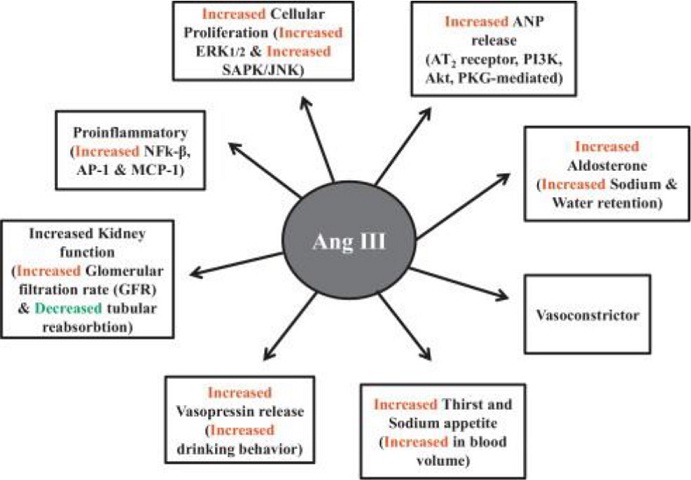Physiological Effects of Angiotensin III
Abstract
The Renin Angiotensin System (RAS) is a peptide hormone system that has many physiological effects. In addition to this it plays an important role in the pathophysiology of money diseases, such as hypertension, Congestive Heart Failure (CHF), Myocardial Infarction (MI) and diabetic nephropathy. The main biologically active peptides of RAS are Angiotensinogen (AGT), Angiotensin II (Ang II), Angiotensin III (Ang III), Angiotensin IV (Ang IV) and Angiotensin [Ang-(1–7)]. Even though, Ang II is still considered the major peptide of the RAS, there is growing evidence that peptide fragments of Ang II like Ang III also have various and important physiologic roles. Moreover, most of the available studies have focused on Ang II as the likely key peptide from the RAS that directly and indirectly regulates physiological functions. However, findings from recent studies suggest that Ang III may produce physiologically relevant effects that are similar to those produced by Ang II. Ang III is heptapeptide and has about 40% of the vasopressin activity of Ang II, but 100% of the aldosterone-stimulating activity. It has been suggested that Ang III is the natural aldosterone-stimulating peptide. However, this appears not to be the case and instead Ang III is simply a breakdown product with some biologic activity. Therefore, this research review focuses on Ang III and physiological effects that it produces in the body. This review is also expected to focus on the recent knowledge of Ang III and physiologic effects in various parts of human body.






